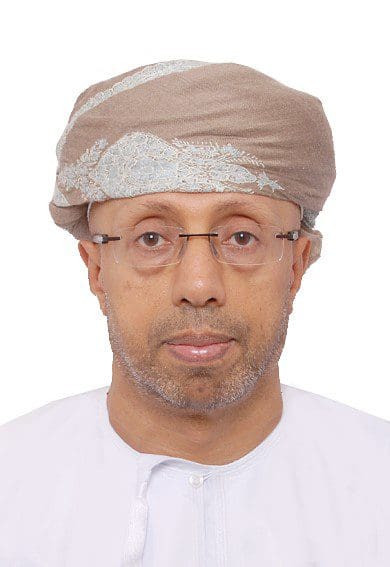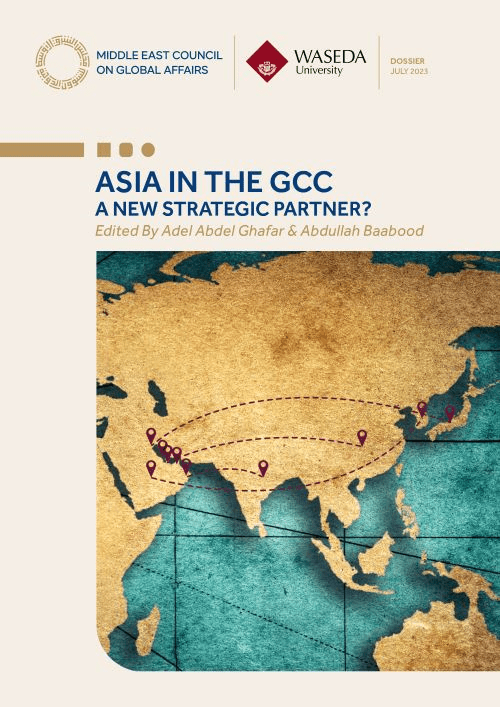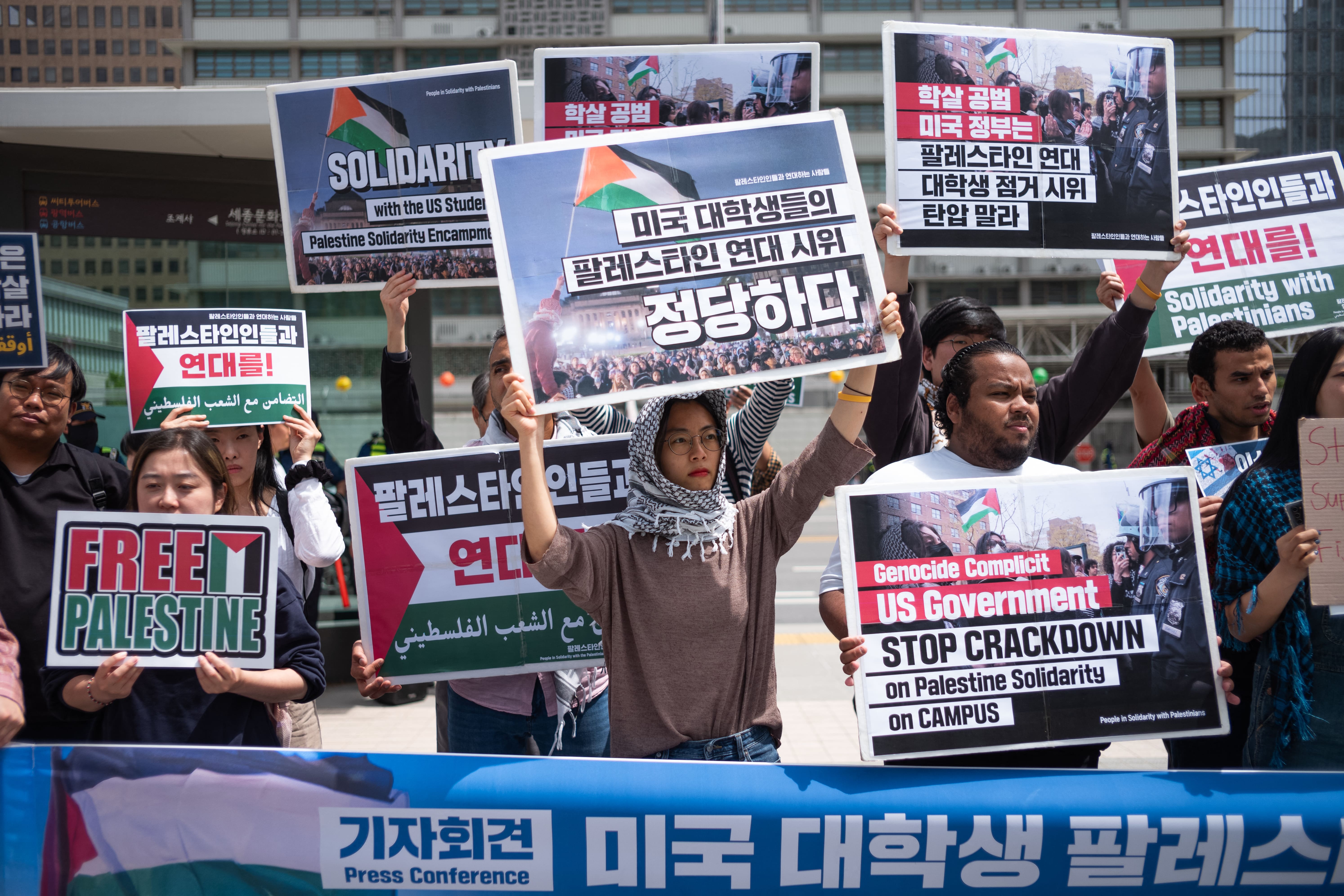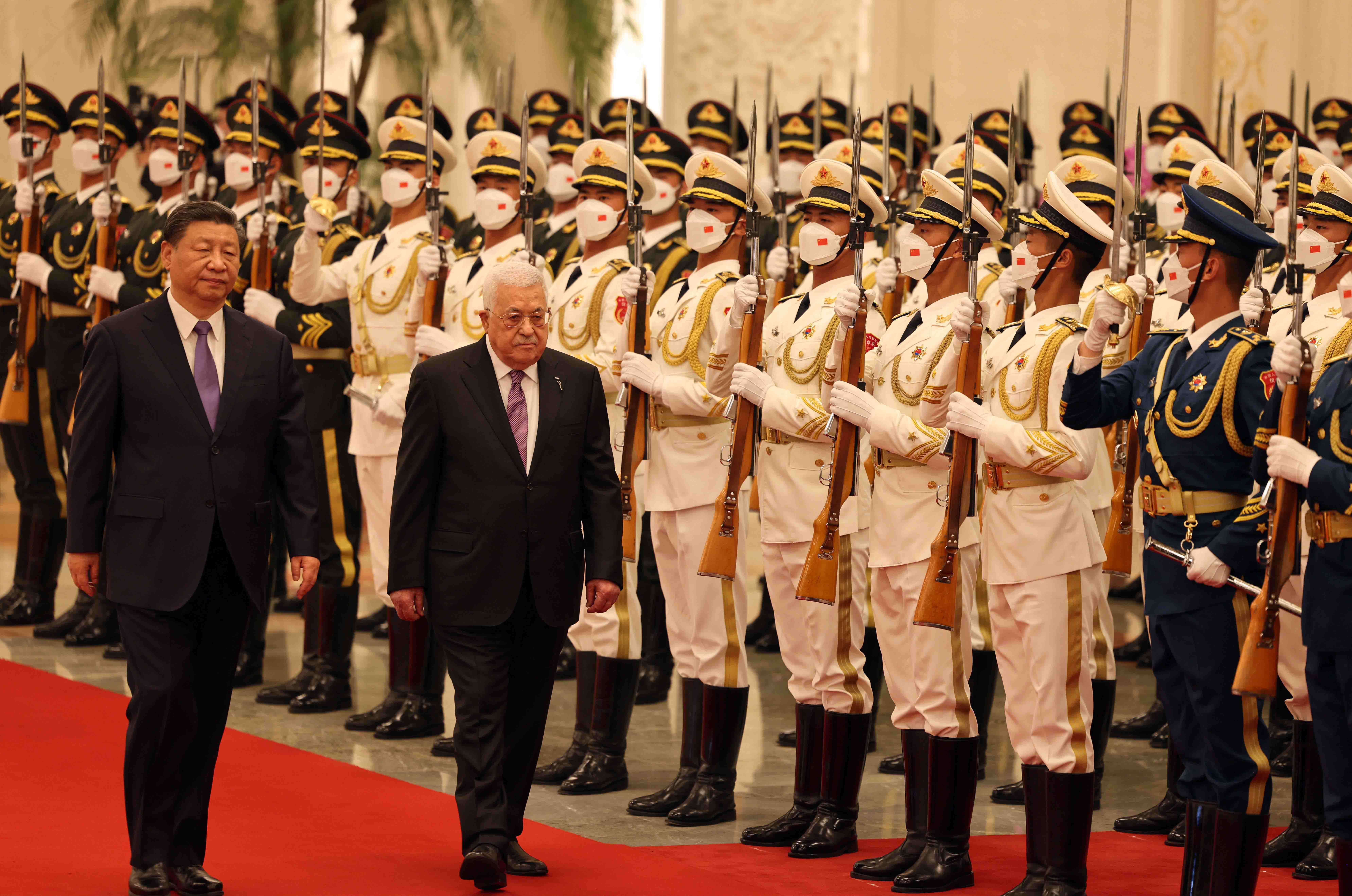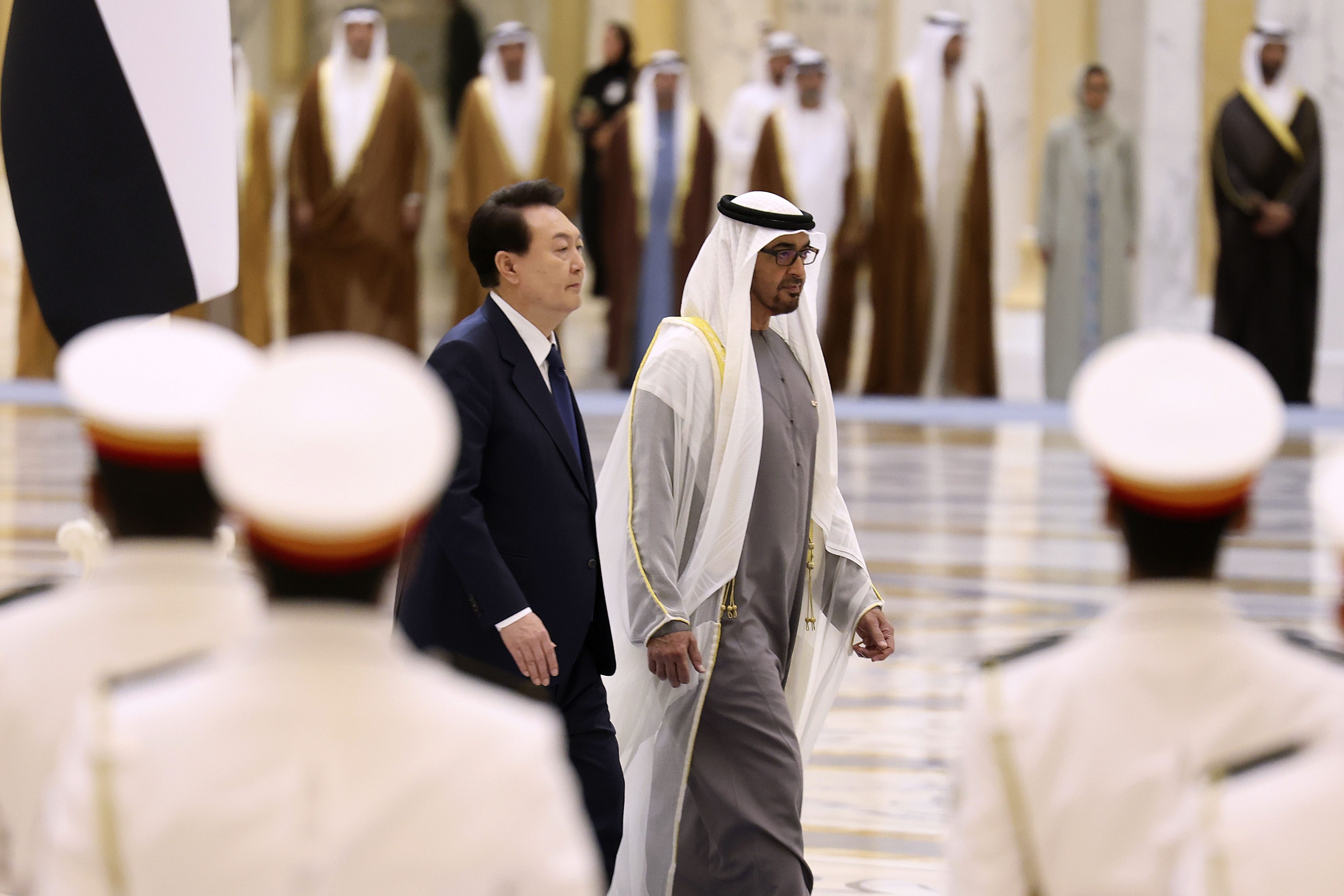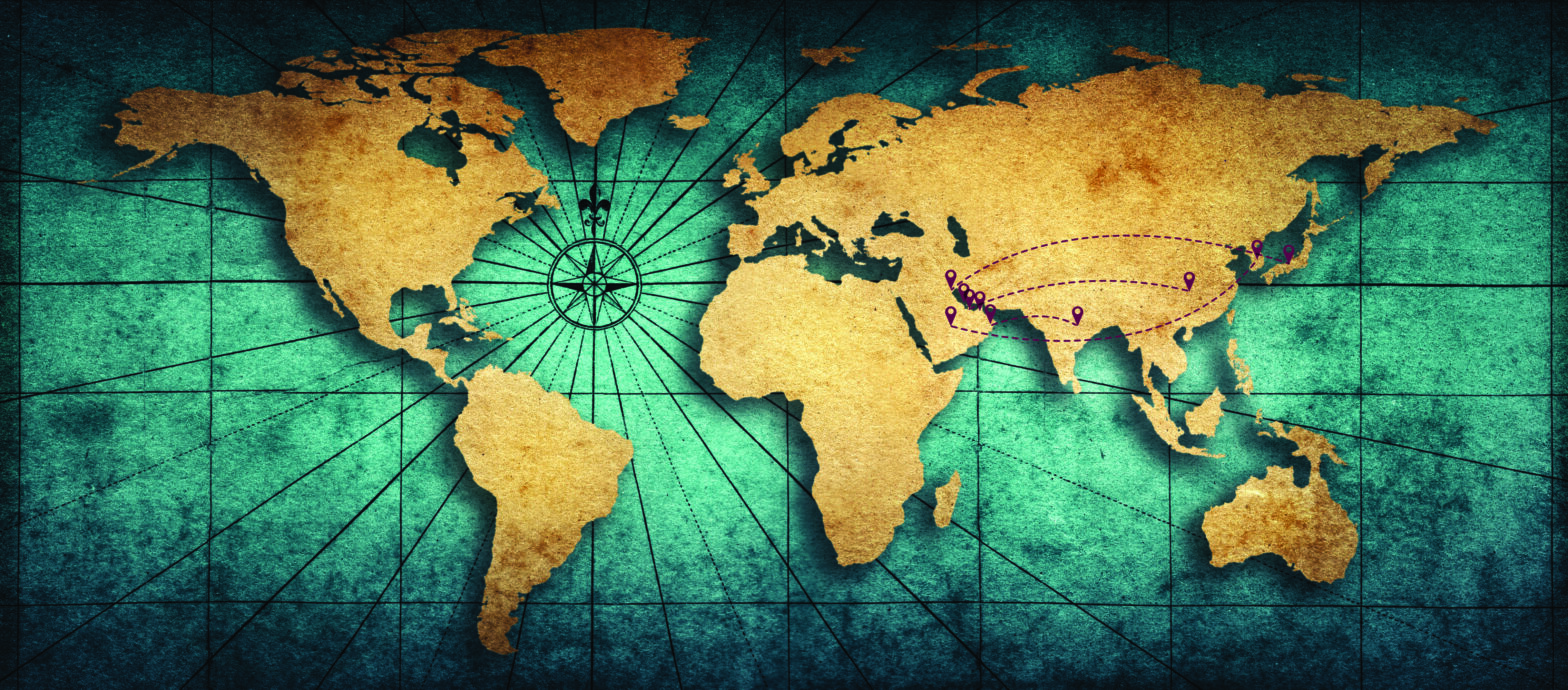
Asia in the GCC:
A New Strategic Partner?
Dossier, July 2023
Introduction
Background and Context
Over the past two decades, the four major Asian powers—Japan, China, India, and South Korea—have deepened their engagement across the Middle East, in particular with the countries of the Gulf Cooperation Council (GCC). Cooperation between the Asian powers and the GCC has been multifaceted, incorporating socio-economic, political, and security dimensions. Across the GCC, the Asian powers’ growing footprint can clearly be observed. From South Korean construction and Chinese Belt and Road Initiative (BRI) connectivity to Japanese infrastructure and technology investments and extensive Indian manpower, all indicate that these partnerships will only grow as the economic weight of the world shifts to Asia.
As the GCC countries undergo a historic process of socio-economic transition, these partnerships will become increasingly important. Fluctuating hydrocarbon revenues, demographic pressures, unemployment among Gulf youth, and a lack of economic diversification have put enormous strain on public finances. Together, these factors have created major impetus for economic reform across the GCC. In addition to socio-economic challenges, GCC countries are likely to feel the increased impact of climate change over the next decades. Asian powers will have an important role to play as GCC states address these multilayered, complex challenges.
Asian powers’ growing engagement with the GCC will come with the challenge of having to navigate an increasingly convoluted geopolitical picture. Intensifying U.S.-China competition, ongoing civil wars and unrest in the broader Middle East, inter-GCC disagreements, and tensions over Iran’s nuclear program all highlight that the four Asian powers cannot limit their engagement to the economic realm and may have to contribute to the region’s security architecture.
To examine the multifaceted and expansive socio-economic, political, and security linkages between the GCC and Asia, the Middle East Council on Global Affairs and the State of Qatar Chair for Islamic Area Studies at Waseda University initiated a two-year research project bringing together leading experts to provide in-depth, timely analysis on many of these issues. Two workshops were held, one in Doha in 2022 and one in Tokyo in 2023. Participants were invited to contribute forward-looking, policy-oriented chapters to this dossier, which focuses on key issues and trends shaping Asia-GCC relations. (Read more)
Table of Contents
Introduction: The GCC in the Asian Century: Opportunities, Challenges, and Future Opportunities – Adel Abdel Ghafar and Abdullah Baabood
Part One: Politics and Security
Chapter 1: The Changing Security Environment in the Indo Pacific and the Implications for the GCC – Matthew Gray
Chapter 2: Asian Powers in the Gulf Maritime Domain: The Arab Gulf Perspective – Rory Miller
Chapter 3: I2U2: Indo-Pacific Minilaterals Come to the Middle East – Jonathan Fulton
Chapter 4: Towards a U.S.-Backed West Asian Security Architecture – Mohammed Soliman
Chapter 5: Russia-GCC-Asia Energy Dynamics: Is the Ukraine War a Game Changer? – Li Chen Sim
Chapter 6: Intra- East Asian Competition in the Gulf and the Indo-Pacific: The Case of Japan and China – Kazuto Matsuda
Chapter 7: China and the Gulf: From Economic Engagement to Strategic Cooperation? – Mahjoob Zweiri and Farah Al Qawasmi
Part Two: Socio-Economics
Chapter 8: GCC Energy Imports by Asian Powers: Navigating the Global Energy Market and Geopolitical Challenges – Steven Wright
Chapter 9: The Implications of the Energy Transition on Asian Powers and the GCC: From the Perspectives of Japan and Saudi Arabia – Shigeto Kondo
Chapter 10: GCC-China Energy Relations in the Post-Paris Agreement Era – Aisha Al-Sarihi
Chapter 11: India’s ‘Think West’ Policy Aligns with the GCC’s ‘Look East’ Policy – Narayanappa Janardhan
Chapter 12: Indian Migrant Workers in the Gulf – Nader Kabbani
Chapter 13: Oil or More? China’s Economic Relations with the GCC – Tingyi Wang
Chapter 14: South Korea in the Gulf Post Pandemic: Emboldening Economic and Political Ties with the GCC Amid the U.S.- China Tech Conflict – June Park
Chapter 15: Energy First, Business Second: Japan’s Economic Diplomacy to the GCC States – Koji Horinuki
Chapter 16: The Role of the GCC Sovereign Wealth Funds in Asia – Fahad Al Marri
Conclusion – Adel Abdel Ghafar Abdullah Baabood

